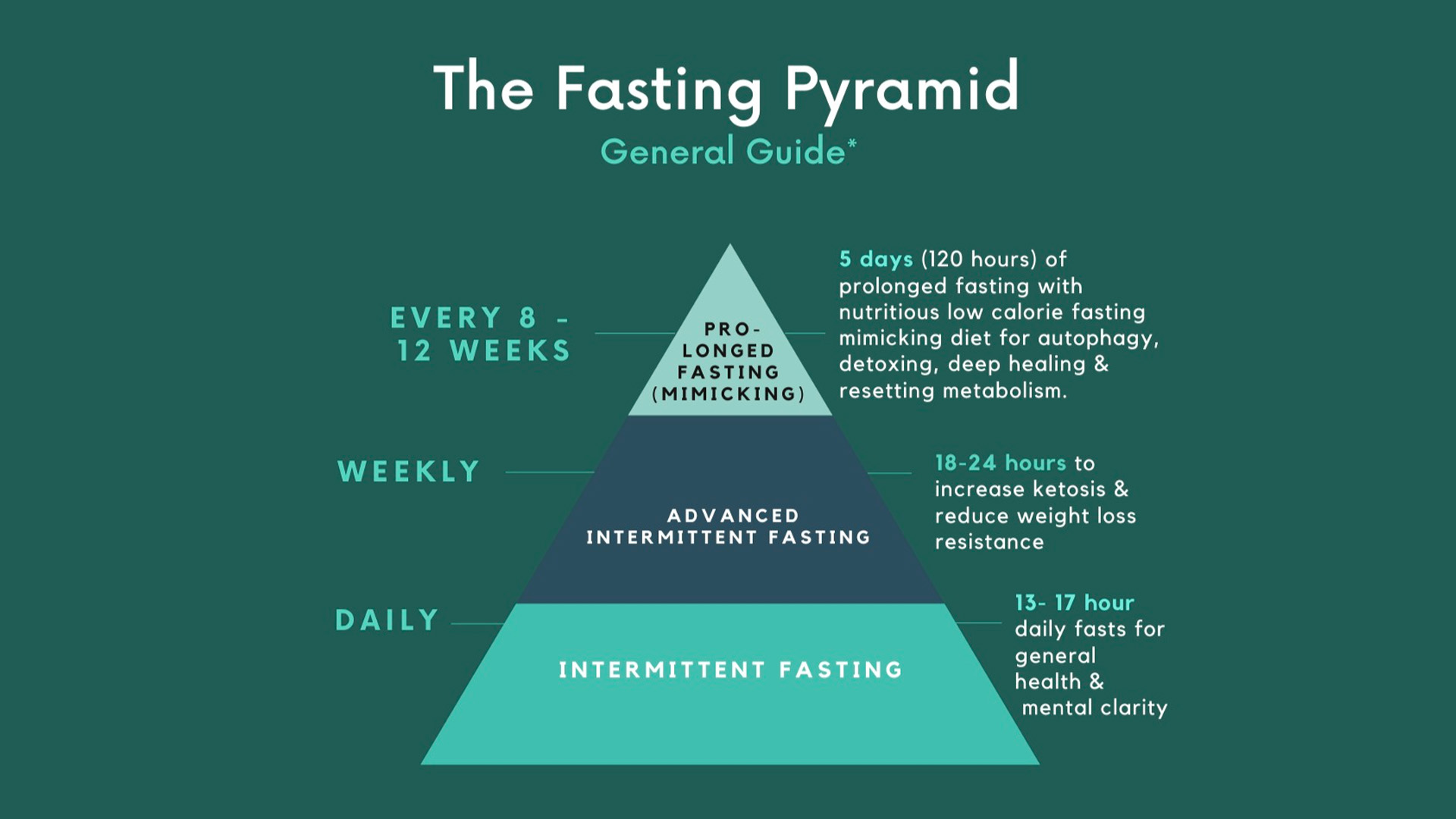The Fasting Pyramid

There is no single way to fast, meaning that the duration of your fast is up to you. And if you do decide that fasting is for you, always start small and gradually build from there. You don’t want to put your body in shock.
Fasting looks different for everyone. We don’t recommend it to all of our clients because even though fasting can produce a multitude of benefits for the mind and body, it is not right for everyone. In fact, if done incorrectly, it can give you the opposite results from what you were looking to achieve.
So before asking how long should you fast, ask this instead – what benefit you are trying to achieve with fasting?
At the clinic, we recommend those who have not tried fasting to start with one fast of 14 hours in a week. When the body doesn’t consume food or calories, it looks for other sources to help generate energy – i.e the glucose present in your body.
Once the glucose is significantly used up, the body’s metabolism changes and the body begins to burn fatty acids from stored fat for energy. Sounds amazing isn’t it?
But here’s a few things to note of before you start fasting.
Stress and Fasting
If you are under a significant amount of stress, it is not recommended for you to fast. Even if you’re regularly keeping the body active and eating a good balanced diet, if stressed (body and mind), fasting could be throwing your entire body off from getting the health results you want.
At the clinic, we work on your adrenals first before working our way up to fasting – we conduct tests to identify underlying symptoms behind sleep irregularities, metabolic syndrome, burnout, anxiety, and a decreased immune response.
If you’re already regularly fasting 24 hours and above
If you’re regularly fasting and would like to reap the benefits of autophagy, deep healing and detoxing, consider the ProLon Fasting Minicking Diet
It helps your body reap the benefits of prolonged fasting (5 days) without having to give up on food and is the only fasting diet that is backed up by decades of scientific research, with pre-clinical and clinical trials conducted at the University of Southern California’s Longevity Institute and Diabetes and Obesity Research Institute, and sponsored by the National Cancer Institutes (NCI) and National Institute on Ageing (NIA) of the National Institutes of Health (NIH).